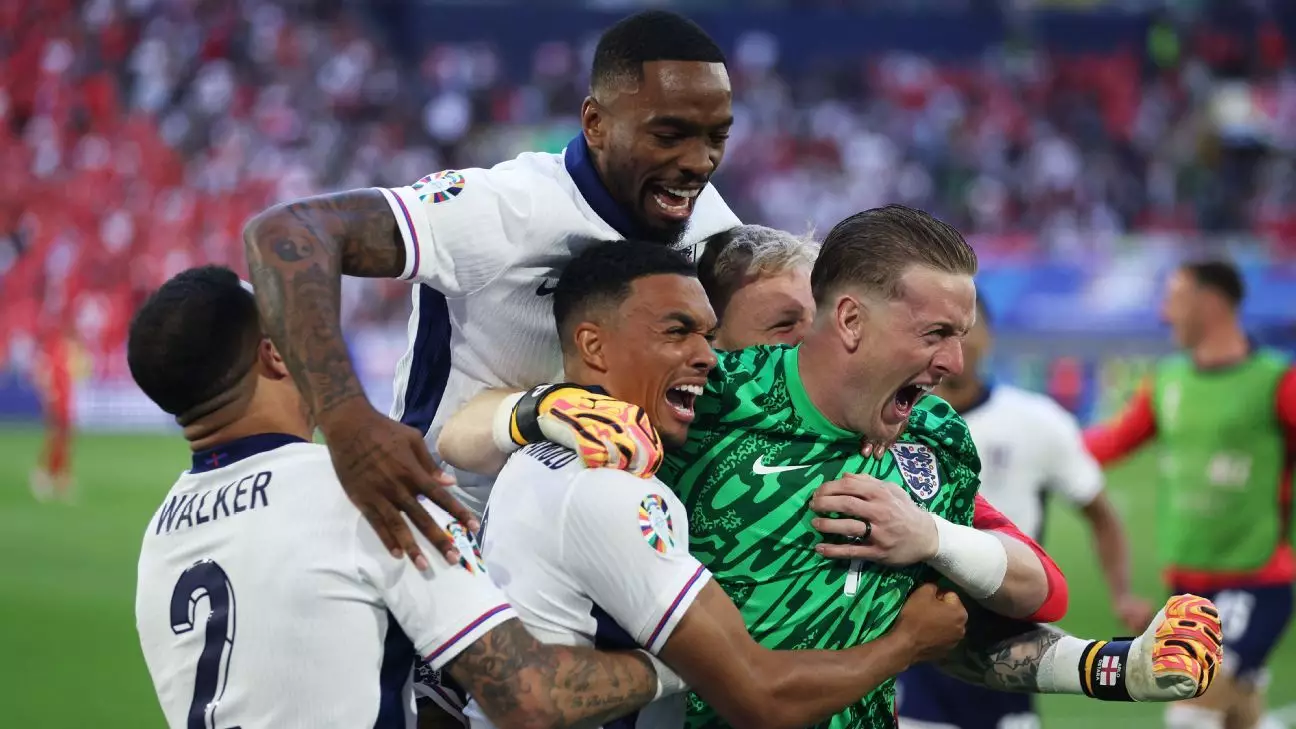England’s performance at Euro 2024 has been far from impressive, with a reliance on gritty wins rather than stylish football. The spotlight has fallen on captain Harry Kane, the team’s star striker, who is facing questions about his effectiveness on the pitch. Despite his impressive track record as England’s all-time leading goal scorer and a former Golden Boot winner, Kane’s recent performances have left much to be desired. In the match against Switzerland, Kane struggled to make an impact, showing signs of fatigue and lack of dynamism. This has led manager Gareth Southgate to ponder whether Kane’s presence is helping or hindering the team’s performance.
Southgate’s dilemma doesn’t end with Kane; the England team as a whole seems to be struggling to find its identity on the field. The makeshift nature of their wins and the constant need for last-minute heroics are raising concerns about the team’s tactical approach. The decision to switch formations from a familiar 4-2-3-1 to a back three shows Southgate’s desperation to find a winning formula. However, the lack of control in midfield and vulnerability in defense have exposed England’s tactical shortcomings. The team’s erratic performances have left fans and pundits alike questioning Southgate’s tactical acumen and the team’s ability to compete at the highest level.
One aspect of England’s game that has improved in recent years is their performance in penalty shootouts. Historically haunted by penalty misses and heartbreak, England seemed to have turned a corner under Southgate’s guidance. The clinical execution of penalty takers and the calmness shown by the players in pressure situations are a testament to the team’s mental strength. However, the reliance on penalties to secure victories highlights England’s struggle to dominate games and finish off opponents in regulation time. The team’s over-reliance on shootouts as a safety net raises doubts about their ability to compete against more tactically astute and technically proficient teams in the latter stages of the tournament.
Despite the criticisms and doubts surrounding England’s performances, there are still signs of hope for the team. Young players like Bukayo Saka and Cole Palmer have shown flashes of brilliance, offering a glimpse into England’s future potential. The emergence of promising talents in defense, such as Ezri Konsa, also bodes well for the team’s long-term prospects. Southgate’s emphasis on resilience and tournament savviness marks a departure from past England teams, showing signs of progress and a willingness to adapt to different challenges. While England’s journey at Euro 2024 may be considered a grind, there are small victories and incremental improvements that hint at a brighter future for English football.
England’s struggle for style at Euro 2024 reflects a team in transition, grappling with tactical uncertainties and individual inconsistencies. While the team’s resilience and ability to grind out results are commendable, questions remain about their ability to compete at the highest level. The need for a clear tactical identity, improved individual performances, and a more proactive approach to games will be crucial for England to shed their tag of perennial underachievers and establish themselves as genuine contenders on the international stage. The road ahead may be tough, but with the right mindset and a willingness to learn from past mistakes, England’s footballing fortunes could be on the cusp of a significant transformation.
